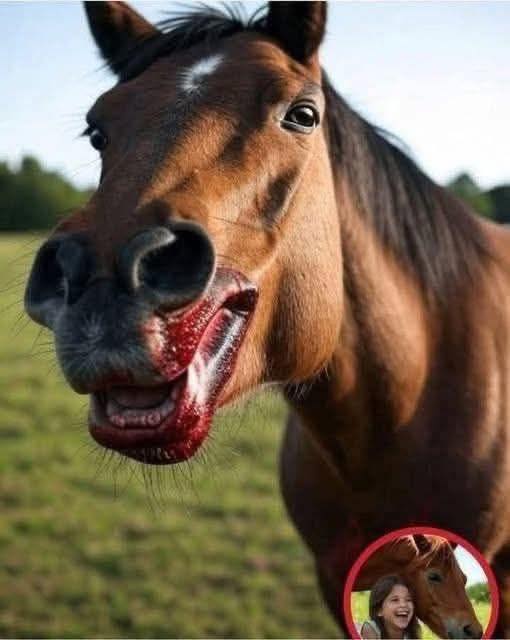Horses are among the most beloved and majestic creatures humans have domesticated. Their grace, intelligence, and sensitivity make them not only companions for recreation but also partners in work, therapy, and sport. Yet, like any living creature, horses have instincts and behaviors that can sometimes surprise even experienced handlers. A recent story that captured online attention involved a horse whose unusual behavior startled its owner and sparked widespread discussion about animal care and farm safety. While initial headlines used dramatic language, the reality of the situation highlights lessons in responsible animal management, understanding animal instincts, and ensuring safety for both humans and animals alike.
Understanding Horses’ Natural Instincts
To appreciate why certain incidents occur, it is essential to understand the natural instincts of horses. Horses are prey animals, which means their survival in the wild depends heavily on vigilance, quick reflexes, and social cooperation within herds. Their daily behaviors—such as grazing, rolling in the dust, and interacting with other herd members—serve important physiological and psychological purposes. However, horses are also curious and can exhibit behaviors that seem strange or even alarming to humans. For instance, they may nibble objects out of curiosity, explore their surroundings with their mouths, or react unpredictably when stressed, anxious, or under-stimulated.
In the reported case that made headlines, the horse’s actions were misinterpreted by some viewers as aggressive or dangerous. In reality, such behavior is often a manifestation of normal equine curiosity combined with environmental factors. For instance, if a horse is confined for long periods or lacks sufficient mental stimulation, it may begin to chew on objects, including those that belong to humans, not out of malice but as a form of exploration or boredom relief.
The Importance of Proper Nutrition and Enrichment
Nutrition and mental enrichment are critical factors that influence horse behavior. Horses require a balanced diet rich in fiber, vitamins, and minerals to maintain proper health and energy levels. Malnutrition or sudden changes in diet can lead to unusual behaviors, including excessive chewing, biting, or even aggression. Moreover, horses benefit greatly from environmental enrichment, which can include toys, varied terrain, interaction with other horses, and structured activities. Providing adequate stimulation reduces boredom-related behaviors that sometimes lead to accidents or unexpected incidents.
In the case in question, veterinarians and equine behaviorists emphasize that proper feeding schedules, safe access to grazing areas, and interactive activities are essential to minimize risk. Simple measures, such as placing hay nets or providing treat-dispensing toys, can keep horses engaged and prevent them from turning to inappropriate objects.
Human Safety Around Horses
While horses are generally gentle, their size and strength make it imperative for handlers to exercise caution. Accidents can occur if a horse feels threatened, startled, or restricted. Safe handling practices include wearing protective gear, maintaining calm body language, and understanding horse signals.
Recognizing these signals allows owners and handlers to prevent potentially dangerous situations. In the reported incident, bystanders were reminded of the importance of observing horses’ behavior carefully before approaching or intervening.
Misunderstandings in Media Coverage
One reason the story gained widespread attention is the tendency of media outlets and social media to dramatize events. Sensational headlines—though eye-catching—can often misrepresent the facts. In this case, the phrase used in early reports created an image of aggression that was neither accurate nor safe to replicate in public perception. Experts urge readers to approach viral animal stories with caution, emphasizing verified facts over speculation or exaggeration.
Veterinarians and animal behaviorists often stress that labeling horses as “dangerous” based on isolated incidents ignores the broader context of their behavior. Horses act according to instinct, experience, and environmental cues, and most incidents are preventable through proper training, supervision, and enrichment.
Lessons for Horse Owners
The situation provides an opportunity to reflect on best practices for equine management:
Regular Health Checks: Routine veterinary examinations ensure that horses are physically
